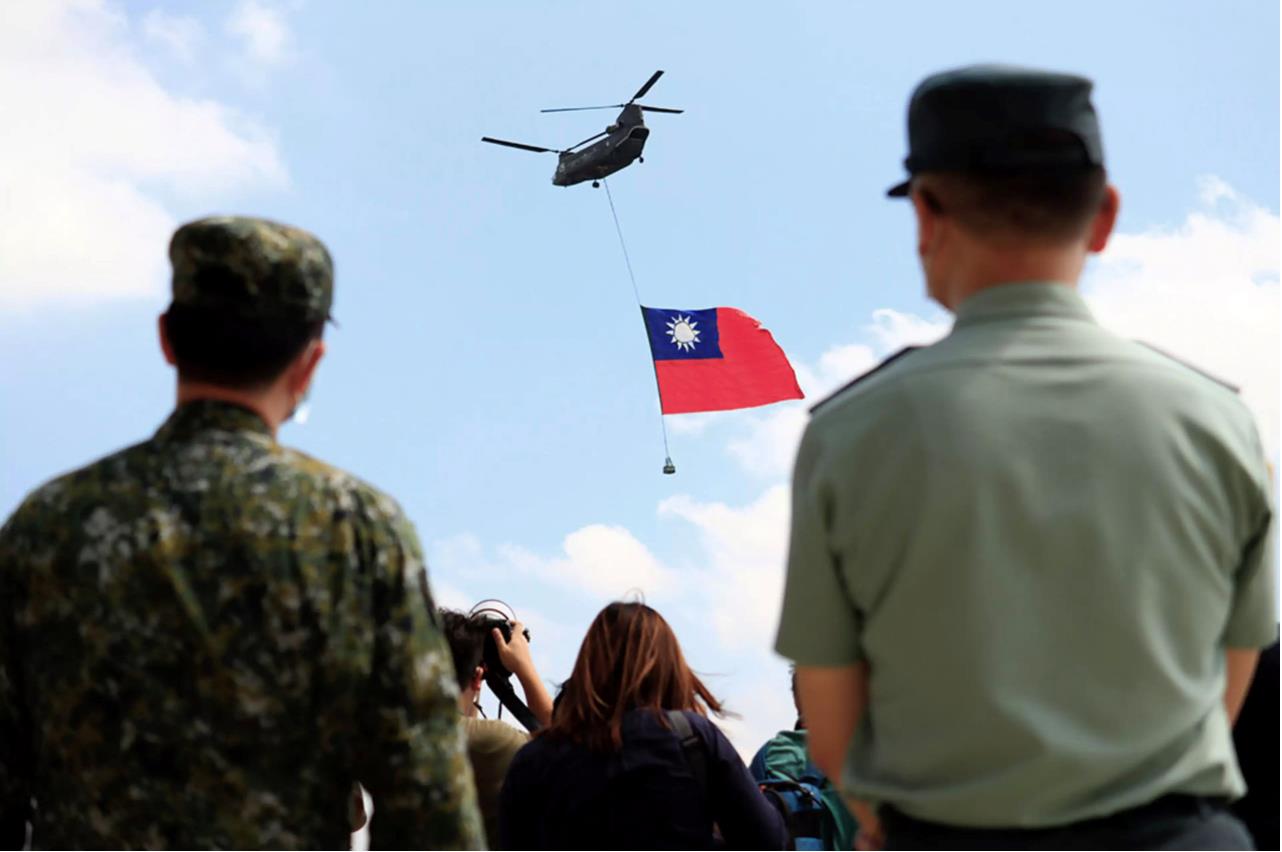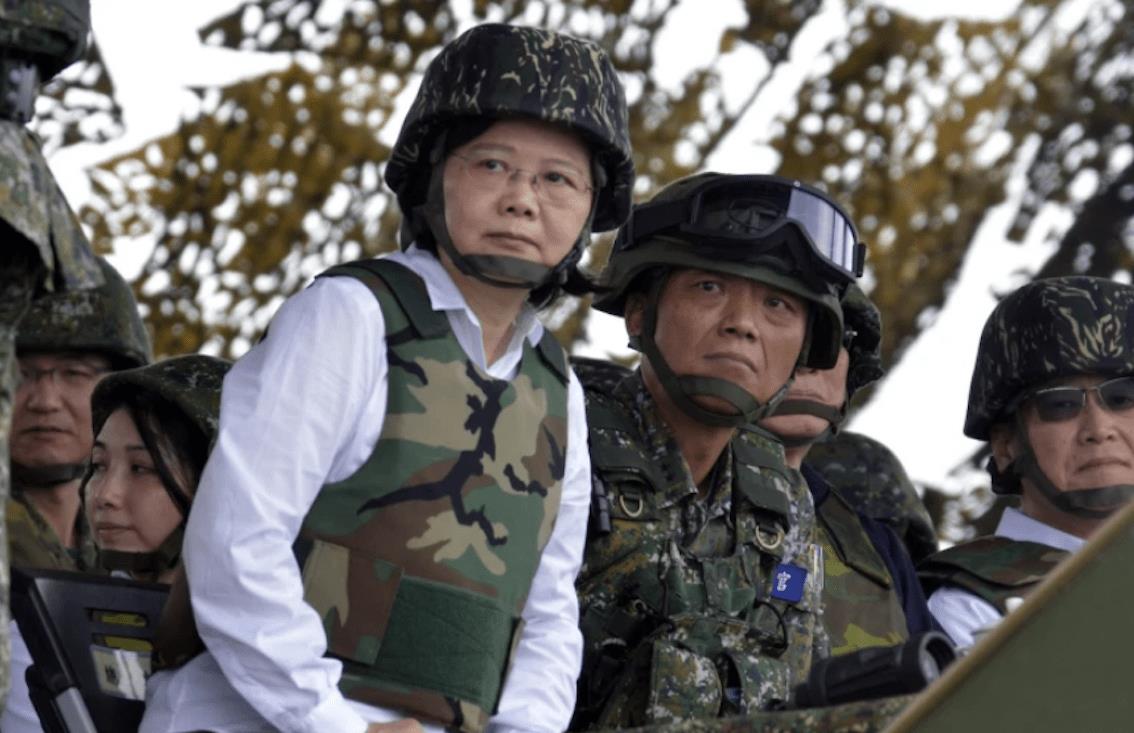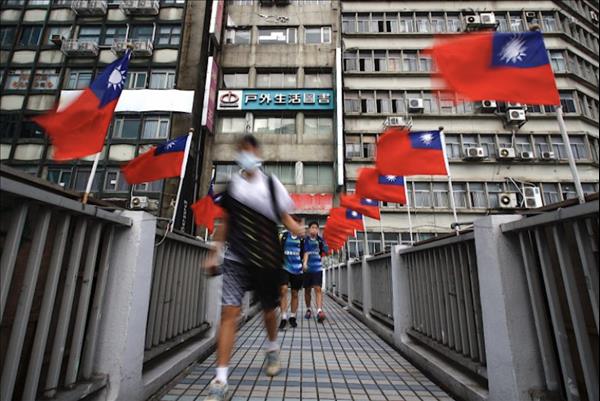(MENAFN- Asia Times) The Taiwan Ministry of National Defense's revised draft of the All-out Defense Mobilization Readiness Act has sparked widespread concern among citizens and free speech advocates. While the proposed revisions were withdrawn within one week , the controversy reflected a profound concern in Taiwan.
The revisions would require all news and media organizations to“cooperate with government controls that may be enforced on all information networks”, and impose stricter penalties on actions deemed detrimental to national security, such as disseminating false information and disregarding government directives.
Efforts to stop China's disinformation campaigns are commendable, but the proposed amendments raise serious concerns about the future of media freedom and political dissent in Taiwan.
The ruling Democratic Progressive Party (DPP) government plans to expand the operative period of the Act from wartime to the so-called“war preparation period” - which is very broadly defined. This would give the government power to control all media platforms and censor information. The revision could restrict the public's access to accurate and diverse perspectives and stifle public debate.
During times of crisis, it may be necessary for the government to control certain information for strategic reasons. But in any democratic country, free and independent news media should be protected. If news media was prevented from questioning any government decision during the war-preparation period, the public would have limited access to information.

A helicopter flies a Taiwanese flag in Taoyuan, Taiwan. Photo: Ceng Shou Yi / NurPhoto / Getty Images
research
on Taiwan's 2020 presidential election expresses a similar concern. On 13 December 2019, Facebook removed 118 fan pages, 99 groups and 51 accounts supporting opposition party candidate Han Kuo-yu. While the high volume of Tsai-related misinformation - particularly from Chinese sources - may justify this, it may have silenced reasonable criticism of Taiwanese President Tsai and legitimate support for Han.
The question is whether China's disinformation changed Taiwan's presidential electoral result. Most Taiwanese voters are not easily swayed by disinformation. Tsai's landslide victory in 2020 showed that Taiwanese voters cast their votes based on their life experiences rather than on recently attained information.
Also, due to great distrust in Chinese media, much of the population is inoculated against pro-Chinese sentiment. This is not to say that Taiwan is immune from disinformation, but the island does need to find a tricky balance - upholding civil liberties while setting a bipartisan guard line to fight against dangers emanating from Chinese Communist Party-linked (CCP) groups.
Some local organizations reported the impact of Chinese disinformation on Taiwan's 2022 election. News media have widely quoted the reports, but they are often based on flawed research. Echo chambers for both the ruling government and the opposition camp are also worsening.
For instance, a report denounced concerns about a news story regarding the Biden administration's supposed plan to evacuate Taiwan's highly skilled chip engineers - particularly from the Taiwan Semiconductor Manufacturing Company (TSMC) - in the worst Taiwan Strait scenario. The investigation suggested that opposition to this idea is driven by pro-CCP personnel.
Yet Rupert Hammer-Chamber, long-time Taiwan supporter and president of the US–Taiwan Business Council, is also concerned about the redevelopment of the chip industry in the United States. In a recent editorial , he stated that the United States and Europe“must walk the line between onshoring vital production capacity while not marginalizing and weakening Taiwan economically in the process.”
In Taiwan, citizens view the ongoing Chinese threat differently. Some see China as an enemy and mobilize those who do not pay much attention to politics and are particularly vulnerable to propaganda - particularly youth. Others view China as a threat but pragmatically see that Taiwan needs to find ways to deal with China instead of fighting or decoupling.
Taiwan needs to understand that preventing Taiwanese division means rebuilding solidarity among its population of 23.5 million. Fighting disinformation must focus on creating mutual trust rather than discrediting those with different opinions. One possible way to deal with the future disinformation war is to build a trustworthy independent agency with multi-partisan members or pursue a“Taiwan consensus.”
Tsai coined the idea of creating a Taiwan consensus in 2011. The term differs from the 1992 consensus regarding cross-strait relations - the Taiwan consensus is about forming a common goal for Taiwan's shared future.

Taiwanese President Tsai Ing-Wen oversees a military drill. Photo: AFP / Sam Yeh
Without a common goal, the witch-hunting style of disinformation war can only further divide an already polarised Taiwanese society, making it easier for China's disinformation to take root and endangering Taiwan's democracy. People must remain vigilant in protecting the values of free speech and hold the government accountable to them.
Concerns that stricter regulation could violate freedom of speech serve as a warning to all democracies, as increasing anti-authoritarian sentiment may make democratic governments set up tighter media controls. But it also increases the possibility that a democratic government abuses its power and suppresses political opposition for political interests.
The DPP government must find a way to balance national security and freedom of speech to uphold Taiwan's values. Taiwan needs to learn this lesson, and so do other mature democracies. Indeed, the government must prevent the spread of disinformation as it could destabilize society, but its solution should not be worse than the problem.
Dennis LC Weng is Associate Professor of Political Science at Sam Houston State University, and the Founding Chief Executive Officer of Asia Pacific Peace Research Institute, a new think tank on Asia Pacific Peace Studies.
This article was originally published by East Asia Forum and is republished under a a Creative Commons license.
Like this:Like Loading...


























Comments
No comment